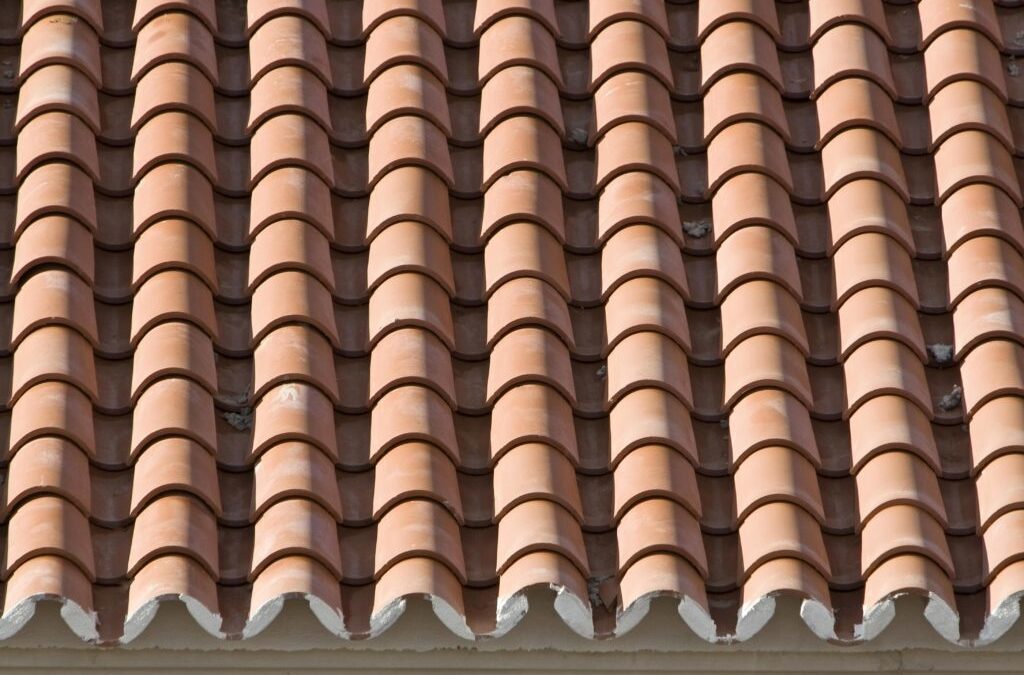What You Need To Know About Sun Damage To Your Roof
Jacksonville roofers will tell you the life of your roof is affected by the sun. This is especially true in Florida. In fact, many roof repairs in Jacksonville are due to sun damage and the deterioration of roofing materials.
The U.S. Department of Energy Office of Scientific and Technical Information said in a report, “Roofing materials are exposed to the elements, namely wind, sunlight, rain, hail, snow, atmospheric pollution, and temperature variations and consequently degrade over time. Even the most durable materials are modified by deposition of ambient dust and debris, and may provide an opportunity for colonization by biological organisms such as cyanobacteria, fungi and algae.”
Cindy Paquet, the owner of a leading roofing company in Jacksonville, Cache Roofing, said that many materials degrade over time with the help of sunlight and heat. She added that the intense heat in combination with quick, cooling rain showers also adds to the weathering of different roofing materials.
The report by the U.S. Department of Energy Office of Scientific and Technical Information supports this statement. The report states: “The temperature rise in sunlight can directly lead to materials degradation. Increased temperature can accelerate deleterious chemical reactions, cause loss of volatile constituents, and soften some polymers. Temperature changes, either gradual or sudden (rain shower on a hot day), cause stresses due to differential thermal expansion.”
Different Roofing Materials And The Sun
Every roofing material degrades over time, but there are some materials that fare better against the Florida sun and heat than others. Metal roofs, the coating on metal roofs, asphalt shingle roofs and ceramic tile roofs all react differently to the sun and heat.
Metal Roofs
Metal roofs fare pretty well against the sun depending on the metal used and the coating used during installation. Paquet said metal roofs are built with layers of metals, usually galvanized steel. These layers are then coated with polymer layers that vary in grade.
The U.S. Department of Energy Office of Scientific and Technical Information’s report explains the differences in many of the polymers available. “For polymer coatings on metal roofing, three durable materials are polyester, silconemodified polyester, and PVDF (polyvinylidene fluoride) [7]. Polyester is inexpensive and can be used to form hard, scratch-resistant coatings. However, exposure to UV does cause some chalking,” the report says.
Paquet added that many polymers have color grades, meaning some fade in color after so many years of weather exposure. Keeping your roof clean can help delay the fading.
Shingle Roofs
Asphalt is used with many shingle roofs as the binder. The asphalt serves as a waterproof binder for the shingles to adhere to. When the asphalt absorbs enough UV rays it can have damaging effects. The sun, air and water can cause oxidation to the asphalt that can make the asphalt hard and brittle.
Manufacturers test the asphalt to make sure it can absorb UV rays for an acceptable length of time. The U.S. Department of Energy Office of Scientific and Technical Information report says, “As a result of oxidation, asphalt becomes harder and embrittled [19.20]. In order to achieve acceptable weathering lifetimes for asphalt shingles, therefore, it is essential that the roofing granules absorb the UV component of sunlight. Manufacturers test granules to ensure that they are efficient UV absorbers. Then, if good coverage of the asphalt substrate is achieved by the roofing granules, the photo-oxidation process is largely prevented.”
Paquet said Cache Roofing can fix where some of the asphalt starts deteriorating through the years. The Cache Roofing team can walk around the property and see where deterioration is occurring. At this point they can scrape the brittle asphalt off and replace it or do more if necessary.
It’s worth being aware that asphalt can weather and become brittle. Being on the lookout for this can help you make quick, easy fixes instead of waiting until there are major deterioration problems that could have been dealt with early on before major issues ensued.
Tile Roofs
Ceramic tile roofs tend to fare the best against the sun and heat. Cache Roofing specializing in tile roofing and this is one of the reasons why: It’s durable and weather resistant. “Clay tile is dense and tends to be more stable. It is a great material, but it is more expensive and takes longer to install,” Paquet said.
The report referenced above also says ceramic material withstands the sun and heat better than many other roofing materials. “Ceramics like clay tile are fired at a high temperature in the air during the manufacturing process. If free of reactive and water-soluble impurities, these materials are extremely stable and understandably immune to moderate changes in temperature.”
An Architizer.com article on the best roofing materials for hot climates says, “The words terra-cotta literally translate to “cooked earth” in Italian, and it’s that baking process — in a kiln at high temperatures — that gives these tiles their weather-resistant properties. In fact, clay tiles have been known to stand up to the heat for centuries, regularly lasting as long as 50 years or more.” The Architizeran is an online platform for architects and manufactures to innovate together. The article goes on to say, “The curved shape of the tiles makes a difference, as well, allowing air to circulate below the surface, which keeps roofs and interiors cooler.”

With time, every roof will age. It is important to know what kind of roof you have and what to look out for to protect your roof for as long as you can. Proper and consistent maintenance can help lengthen the life of your roof. Let Cache Roofing help you keep up with it all. Their Worry-Free Roofing Program can help you keep up with the health of your roof.



Recent Comments